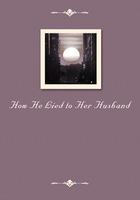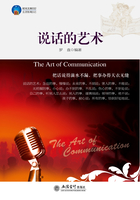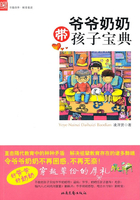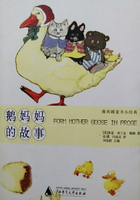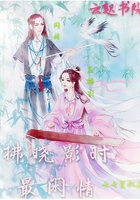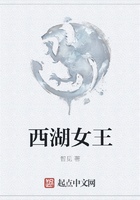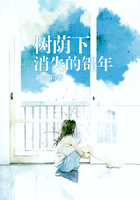Civilization is refinement of spirit, respect of one's neighbor, tolerance of foreign opinion, courtesy of manner. Kultur is the action of a State that organizes and assimilates individuals and communities in order to utilize them for its own ends; and these ends consist mainly in placing 'The State' above other states, overwhelming them with their grandeur--or what is the same thing--with their haughty and violent pride."
By this time, the three had reached the place de l'Etoile. The dark outline of the Arc de Triomphe stood forth clearly in the starry expanse. The avenues extended in all directions, a double file of lights. Those around the monument illuminated its gigantic bases and the feet of the sculptured groups. Further up, the vaulted spaces were so locked in shadow that they had the black density of ebony.
Upon passing under the Arch, which greatly intensified the echo of their footsteps, they came to a standstill. The night breeze had a wintry chill as it whistled past, and the curved masses seemed melting into the diffused blue of space. Instinctively the three turned to glance back at the Champs Elysees. They saw only a river of shadow on which were floating rosaries of red stars among the two long, black scarfs formed by the buildings. But they were so well acquainted with this panorama that in imagination they mentally saw the majestic sweep of the avenue, the double row of palaces, the place de la Concorde in the background with the Egyptian obelisk, and the trees of the Tuileries.
"How beautiful it is!" exclaimed Tchernoff who was seeing something beyond the shadows. "An entire civilization, loving peace and pleasure, has passed through here."
A memory greatly affected the Russian. Many an afternoon, after lunch, he had met in this very spot a robust man, stocky, with reddish beard and kindly eyes--a man who looked like a giant who had just stopped growing. He was always accompanied by a dog. It was Jaures, his friend Jaures, who before going to the senate was accustomed to taking a walk toward the Arch from his home in Passy.
"He liked to come just where we are now! He loved to look at the avenues, the distant gardens, all of Paris which can be seen from this height; and filled with admiration, he would often say to me, 'This is magnificent--one of the most beautiful perspectives that can be found in the entire world.' . . . Poor Jaures!"
Through association of ideas, the Russian evoked the image of his compatriot, Michael Bakounine, another revolutionist, the father of anarchy, weeping with emotion at a concert after hearing the symphony with Beethoven chorals directed by a young friend of his, named Richard Wagner. "When our revolution comes," he cried, clasping the hand of the master, "whatever else may perish, this must be saved at any cost!"
Tchernoff roused himself from his reveries to look around him and say with sadness:
"THEY have passed through here!"
Every time that he walked through the Arch, the same vision would spring up in his mind. THEY were thousands of helmets glistening in the sun, thousands of heavy boots lifted with mechanical rigidity at the same time; horns, fifes, drums large and small, clashing against the majestic silence of these stones--the warlike march from Lohengrin sounding in the deserted avenues before the closed houses.
He, who was a foreigner, always felt attracted by the spell exerted by venerable buildings guarding the glory of a bygone day. He did not wish to know who had erected it. As soon as its pride is flattered, mankind tries immediately to solidify it. Then Humanity intervenes with a broader vision that changes the original significance of the work, enlarges it and strips it of its first egotistical import. The Greek statues, models of the highest beauty, had been originally mere images of the temple, donated by the piety of the devotees of those times. Upon evoking Roman grandeur, everybody sees in imagination the enormous Coliseum, circle of butcheries, or the arches erected to the glory of the inept Caesars. The representative works of nations have two significations--the interior or immediate one which their creators gave them, and the exterior or universal interest, the symbolic value which the centuries have given them.
"This Arch," continued Tchernoff, "is French within, with its names of battles and generals open to criticism. On the outside, it is the monument of the people who carried through the greatest revolution for liberty ever known. The glorification of man is there below in the column of the place Vendome. Here there is nothing individual. Its builders erected it to the memory of la Grande Armee and that Grand Army was the people in arms who spread revolution throughout Europe. The artists, great inventors, foresaw the true significance of this work. The warriors of Rude who are chanting the Marseillaise in the group at the left are not professional soldiers, they are armed citizens, marching to work out their sublime and violent mission. Their nudity makes them appear to me like sans-culottes in Grecian helmets. . . . Here there is more than the glory and egoism of a great nation. All Europe is awake to new life, thanks to these Crusaders of Liberty. . . . The nations call to mind certain images. If I think of Greece, I see the columns of the Parthenon; Rome, Mistress of the World, is the Coliseum and the Arch of Trajan; and revolutionary France is the Arc de Triomphe."
The Arch was even more, according to the Russian. It represented a great historical retaliation; the nations of the South, called the Latin races, replying, after many centuries, to the invasion which had destroyed the Roman jurisdiction--the Mediterranean peoples spreading themselves as conquerors through the lands of the ancient barbarians. Retreating immediately, they had swept away the past like a tidal wave--the great surf depositing all that it contained.

